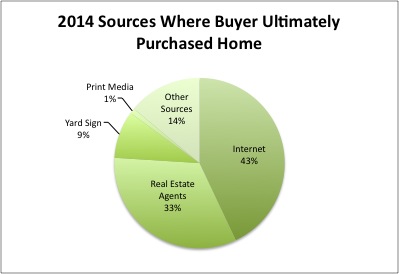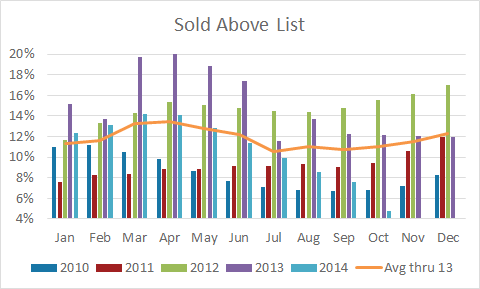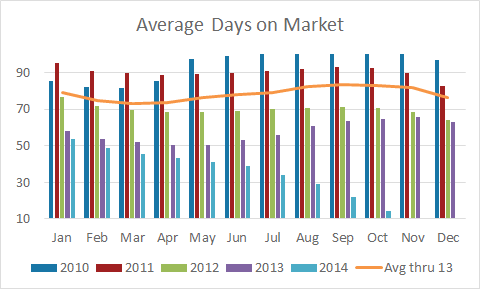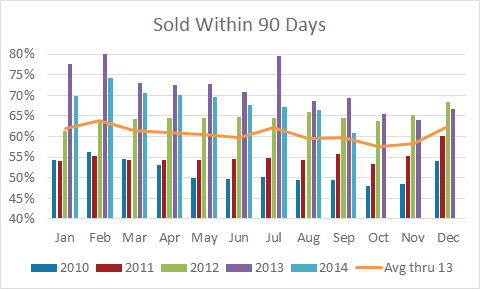The Importance of Having a New Home Inspected
Good Monday Afternoon!
Home inspections are an essential part in the process of purchasing a home. This even means they are important when purchasing a brand new home from a builder. The following article from "Realty Times", talks about the importance of having a new home inspected.
Question: We are looking to buy a new home from a builder. We like the neighborhood and the price has been reduced to make it very attractive. Additionally, the builder is throwing in a number of extras, including paying all of our closing costs.
However, we do not know this builder's reputation, and would like to have the home inspected before we go to closing. Is this possible?
Answer: In today's buyer's market, most anything is possible, and I think it's a very good idea. However, builders often reject such arrangements, for a number of reasons. Some builders claim that this will void their insurance policy and are afraid that someone will get hurt during the inspections. Other builders don't want their employees bothered by too many questions from the inspector, while other builders just say that "we will provide you with a house that has been approved by the county inspectors, so you do not have to worry."
But you are correct in worrying. According to Frank Lesh, former president of the American Society of Home Inspectors (ASHI), "even new homes have defects that only a professional can detect".
Keep in mind that in many counties, the government inspectors are busy and do not have time to carefully look at all aspects of the new home. Often, by the time the county inspector makes a site visit, your builder may already have put up the drywall, thereby covering up the electrical and the plumbing.
I have been involved in a number of new home warranty issues, many of which could have been avoided had the buyer been given the right to inspect the new home as it was being built. In one case, the new homeowner kept hearing pipes knocking every time the upstairs bathroom sink was turned on. The homeowner forced the developer to open up the walls -- at the developer's expense -- and found that some of the plumbing pipes were not properly affixed to the wall. The building inspector that the homeowner retained -- after the house had been completed -- determined that this was what he called "water hammer".
Indeed, in this case, the builder acknowledged that had there been a periodic inspection, the problem would have been detected earlier, at a significant cost savings to the builder.
ASHI recommends a three-pronged inspection: prior to the pouring of the foundation, prior to insulation and drywall, and finally prior to the final walk-through.
You should tell the builder that you want the right to have an inspector of your choice -- and at your expense -- to conduct these three inspections. The sales contract you sign should spell out this right in clear terms.
There are many components involved in a new home -- such as the roof, the foundation, the electrical and plumbing and the heating and air conditioning systems. I recently heard of a situation where a homeowner complained that the new house was not being adequately cooled, and when a professional inspected the system, he discovered that the builder had made a mistake. The system that was designed for a smaller house was accidentally installed in the house that was inspected.
Once again, the developer had to spend a lot of money correcting the situation -- money which could have been saved had there been periodic inspections.
It often amazes me that when consumers buy a new car, they inspect it carefully, even to the point of kicking the tires. But when they buy a new house, they are more concerned about how many bedrooms there will be, and what size television will they be able to put in the family room.
To my knowledge, there are two major home inspection organizations: ASHI and the National Association of Home Inspectors.
If you do not have the name of a competent inspector, you can find one by going to either of these organization's website.
When you contact a home inspector, inquire of his/her qualifications and background and check him/her out on the Web and at the Better Business Bureau.
If you decide to hire an inspector, get a copy of the inspector's contract before you formally commit yourself. Read it carefully, and make sure that the inspector will be doing the job you want.
There is one controversial provision in most home inspector's contract, called "an exculpatory clause". This states that should the inspector make a mistake and negligently fail to pick up problem areas in the house, your only remedy is to get full refund of the contract price. This clause has been upheld in the State of Maryland. However, the District of Columbia Court of Appeals held that these exculpatory clauses will not be enforced "when a party to the contract attempts to avoid liability for intentional conduct of harm caused by "reckless, wanton or gross behavior." (Carlton v Home Tech, decided June 15, 2006). This was a modest fix but unless you can prove that the inspector was engaged in such behavior, the exculpatory clause will be enforced. State laws differ on this issue.
While not every home inspector will agree to delete this clause, it certainly is worth trying.
Purchasing a new home creates significant anxiety among many potential homebuyers. Why not get an inspector to be on your side to relieve you of at least one aspect -- namely is the house built properly or will we have problems after we go to settlement?
Have An Awesome Week!
THIS WEEKS HOT HOME LISTING!
 2060 MCLEAN BLVD
2060 MCLEAN BLVD
Price: $330,000 Beds: 3 Baths: 2 Sq Ft: 2180
Beautiful and peaceful residence! From high up on a hill enjoy serene tree views. Sunlight floods inside through numerous large windows and 2 sliders. Relax next to the fireplace in the family room, take in the view from the living room, or outside ...
View this property >>



 3097 SUMMIT SKY BLVD
3097 SUMMIT SKY BLVD Just like anything that gets a lot of use, homes show wear and tear after a few years. Certain color schemes and decorative styles begin to look outdated. And there are some improvements that you may have put off as a new homeowner that you can afford to do now.
Just like anything that gets a lot of use, homes show wear and tear after a few years. Certain color schemes and decorative styles begin to look outdated. And there are some improvements that you may have put off as a new homeowner that you can afford to do now.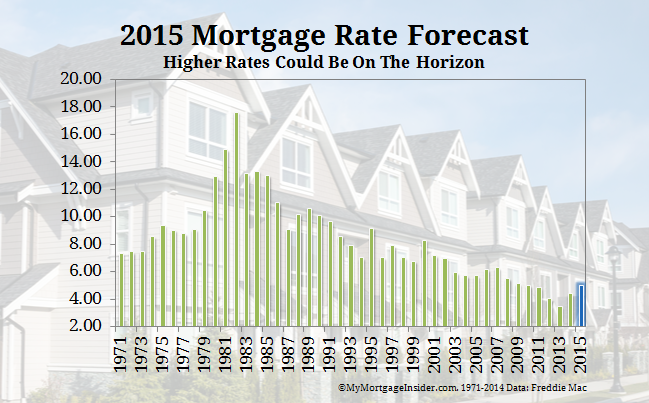 Economists predict that the soaring economy, improved job outlook and ebullient consumer confidence will cause the Federal Reserve to start raising overnight borrowing rates to banks. Mortgage interest rates will become volatile, and things can change quickly for consumers.
Economists predict that the soaring economy, improved job outlook and ebullient consumer confidence will cause the Federal Reserve to start raising overnight borrowing rates to banks. Mortgage interest rates will become volatile, and things can change quickly for consumers. 48808 MCKENZIE HWY
48808 MCKENZIE HWY For most first-time buyers, it's better to accept that for dreams to come true, you have to do the groundwork. Yes, you will be far more independent than you would as a renter, but you will still have some very real responsibilities to make homeownership work. Here are the top three responsibilities you'll have as a homeowner.
For most first-time buyers, it's better to accept that for dreams to come true, you have to do the groundwork. Yes, you will be far more independent than you would as a renter, but you will still have some very real responsibilities to make homeownership work. Here are the top three responsibilities you'll have as a homeowner. 33970 Van Duyn Rd
33970 Van Duyn Rd When you go shopping for homes, remember that you're vulnerable. Cupid may strike with his bow when you least expect it, causing you to fall in love - with the wrong house.
When you go shopping for homes, remember that you're vulnerable. Cupid may strike with his bow when you least expect it, causing you to fall in love - with the wrong house. 2670 Gay Street
2670 Gay Street Why would sellers deliberately sabotage their chances of selling their homes? It doesn't make any sense, yet it happens all the time.
Why would sellers deliberately sabotage their chances of selling their homes? It doesn't make any sense, yet it happens all the time. Price: $529,000 Beds: 4 Baths: 4 Half Baths: 1 Sq Ft: 5,568
Price: $529,000 Beds: 4 Baths: 4 Half Baths: 1 Sq Ft: 5,568 With the housing marketing beginning to heat up again in the Eugene and Springfield market area, the climate for selling a home has never been better. If yoiu are considering putting your home on the market, there are a few things controlled by you that can make a huge difference on how long it takes your home to sell and at what price your home sells at. The following is an article from "Realty Times" that goes over some home selling dont's.
With the housing marketing beginning to heat up again in the Eugene and Springfield market area, the climate for selling a home has never been better. If yoiu are considering putting your home on the market, there are a few things controlled by you that can make a huge difference on how long it takes your home to sell and at what price your home sells at. The following is an article from "Realty Times" that goes over some home selling dont's.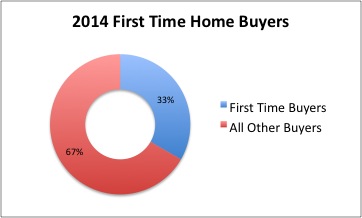
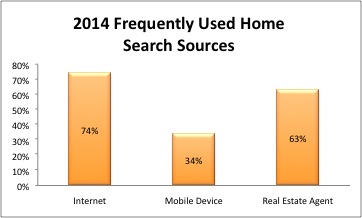 The most useful information for sellers and their agents is to be found in the section on the home search process. While the survey results are not significantly different from those of recent years, the trends continue. For example, this year 74 percent of buyers said that they used the internet frequently during the search process. In 2003 that number was only 42%. This past year 34% of buyers said that they frequently used a mobile or tablet application. That is a newer and growing phenomenon. 63% of buyers said that they frequently relied on a real estate agent for information.
The most useful information for sellers and their agents is to be found in the section on the home search process. While the survey results are not significantly different from those of recent years, the trends continue. For example, this year 74 percent of buyers said that they used the internet frequently during the search process. In 2003 that number was only 42%. This past year 34% of buyers said that they frequently used a mobile or tablet application. That is a newer and growing phenomenon. 63% of buyers said that they frequently relied on a real estate agent for information.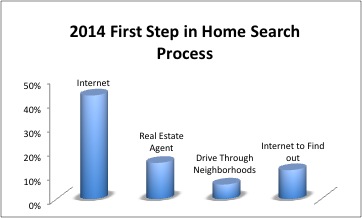 Forty-three percent of buyers went to the internet as the first step in the home search process. 15% contacted a real estate agent first, and 6% began by driving through neighborhoods looking for homes for sale. 12% first went online to find out about the process.
Forty-three percent of buyers went to the internet as the first step in the home search process. 15% contacted a real estate agent first, and 6% began by driving through neighborhoods looking for homes for sale. 12% first went online to find out about the process.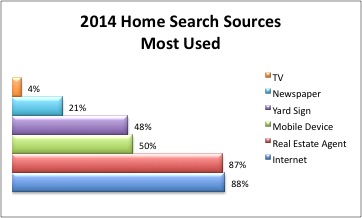 Buyers use multiple sources of information in the process of looking for a home. Far and away the most used sources are on-line websites (88%) and real estate agents (87%). Mobile or tablet applications (50%) have replaced yard signs as the third most used source of information. Still though, 48% of buyers indicate that yard signs are one of their sources of information. Only 21% of buyers indicate that they used newspaper ads as an information source. A mere 4% garnered information from television.
Buyers use multiple sources of information in the process of looking for a home. Far and away the most used sources are on-line websites (88%) and real estate agents (87%). Mobile or tablet applications (50%) have replaced yard signs as the third most used source of information. Still though, 48% of buyers indicate that yard signs are one of their sources of information. Only 21% of buyers indicate that they used newspaper ads as an information source. A mere 4% garnered information from television.